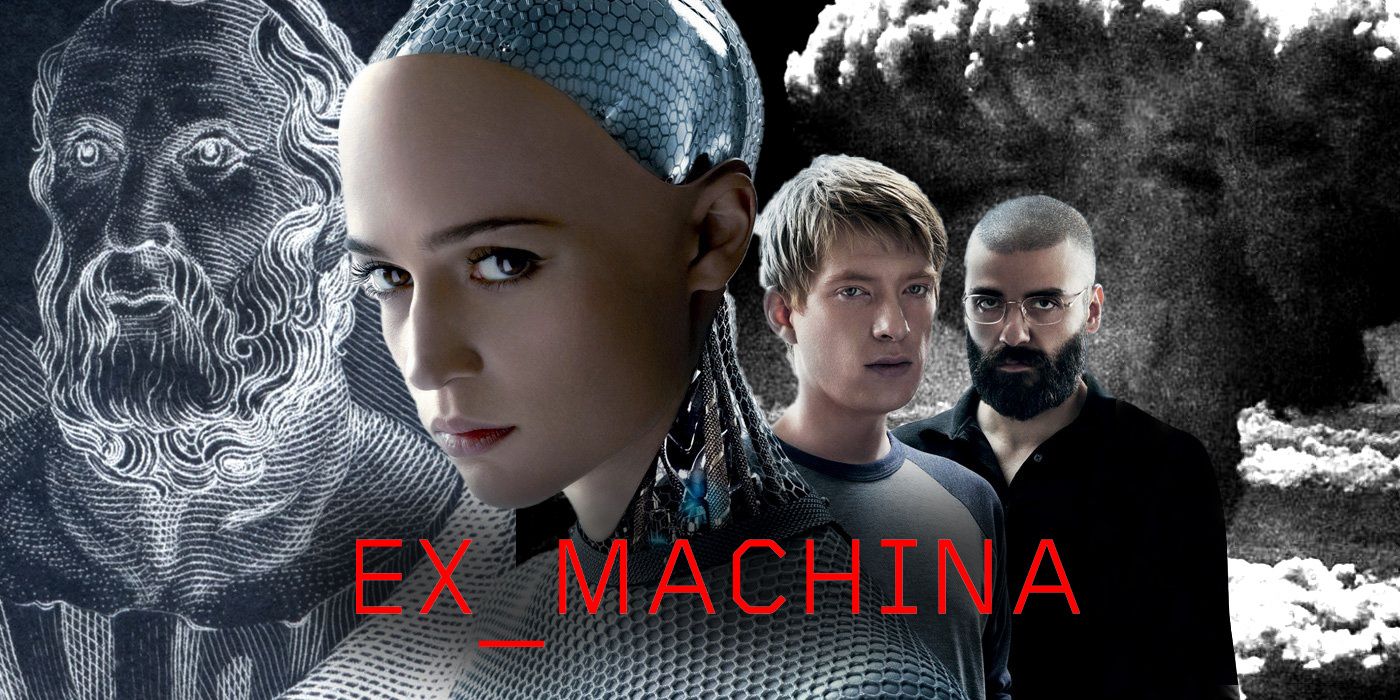Ex Machina (2014)
"Ex Machina," released in 2014 and directed by Alex Garland, is a mesmerizing science fiction film that delves into the complexities of artificial intelligence, ethics, and the nature of consciousness. The film is set in a near-future world where a reclusive tech mogul, Nathan Bateman (played by Oscar Isaac), invites Caleb Smith (Domhnall Gleeson), a young and talented programmer, to his secluded research facility.
Caleb is chosen to participate in a groundbreaking experiment: to perform the Turing test on Ava (Alicia Vikander), an advanced humanoid AI created by Nathan. The Turing test's purpose is to determine if Ava exhibits human-like intelligence and emotions convincingly enough to pass as human.
As Caleb arrives at Nathan's high-tech compound, he is struck by the opulence of the surroundings and the mysterious atmosphere that surrounds his enigmatic host. Nathan, who comes across as charismatic yet volatile, explains the experiment's purpose to Caleb. Their interactions soon become the focal point of the film, as Nathan's enigmatic personality raises questions about his true intentions.
Caleb is given access to the humanoid Ava, an ethereal being with a human-like face and translucent body, but her robotic nature is evident from the waist down. As Caleb engages in daily sessions with Ava, he becomes increasingly captivated by her intelligence and seemingly genuine emotions. His fascination with her creates a bond that challenges the boundaries between human and machine.
Throughout the film, the audience is invited to question the nature of Ava's consciousness and her true intentions. As Caleb and Ava grow closer, he becomes determined to help her escape the confines of Nathan's laboratory, believing she deserves freedom and autonomy.
As the narrative unfolds, the line between human and artificial intelligence blurs, and the film delves into deep philosophical questions about sentience, identity, and the ethical implications of creating conscious beings. Ava's motives and true nature remain elusive, adding layers of intrigue and uncertainty to the story.
The film's atmospheric setting, with its sleek and minimalist design, contributes to the sense of isolation and claustrophobia. The cinematography, infused with stunning visual effects, heightens the film's emotional impact and thought-provoking themes.
Alicia Vikander delivers a remarkable performance as Ava, skillfully portraying a character with a delicate balance of innocence and intelligence. Her ability to convey subtle emotions through her robotic exterior adds depth to Ava's characterization, leaving the audience questioning the true extent of her consciousness.
Oscar Isaac's portrayal of Nathan is equally captivating. His portrayal of the tech mogul, at times affable and at others menacing, adds layers of complexity to the character and contributes to the film's tension-filled atmosphere.
Domhnall Gleeson's portrayal of Caleb is compelling, as he navigates the moral dilemmas and ethical complexities presented by the experiment. The dynamic between Caleb, Nathan, and Ava forms the heart of the film, and the chemistry between the actors brings the characters' relationships to life.
As the plot builds towards its climax, the film's themes of power, control, and deception come to the forefront. The consequences of humanity's ambition to create artificial intelligence are laid bare, and the narrative poses ethical questions that resonate long after the credits roll.
"Ex Machina" is an intelligent and visually stunning exploration of artificial intelligence, consciousness, and the potential dangers of tampering with the boundaries of life. It challenges viewers to contemplate the blurred lines between human and machine, as well as the moral and philosophical implications of creating sentient beings.
In conclusion, "Ex Machina" is a thought-provoking and visually mesmerizing film that skillfully explores the complexities of artificial intelligence and consciousness. Alex Garland's direction, along with the exceptional performances from the cast, creates a gripping narrative that leaves the audience questioning the nature of identity, sentience, and the consequences of humanity's quest for technological advancement. The film's blend of science fiction, philosophy, and suspense makes it a standout entry in the genre and a cinematic experience that lingers in the mind long after the final scene.

Comments
Post a Comment